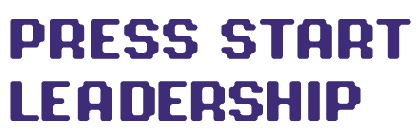From Concept to Market: Navigating Financial, Production, and Marketing Pathways for Indie Developers
In the vibrant and burgeoning world of indie game development, crafting a successful title requires more than just creative vision and technical skills. It demands a strategic approach to integrating financial planning, production management, and marketing to turn an initial concept into a market-ready product. This comprehensive guide provides indie game studios with a blueprint for success, outlining essential strategies to navigate the complex pathways from concept to market.
Understanding the Indie Game Development Landscape
Before delving into the specifics of planning and execution, it’s crucial for indie developers to grasp the landscape of the industry. Unlike major game development studios with substantial budgets and extensive teams, indie developers often operate with limited resources and manpower. This environment, while challenging, also fosters creativity and innovation, allowing indie games to compete with titles from larger studios.
The indie game sector is marked by its diversity in game genres, innovation in gameplay mechanics, and often, a strong personal touch that reflects the vision and passion of its developers. However, the path from an idea to a finished product involves several stages—each with its own set of challenges and requirements.
Stage 1: Conceptualization and Initial Planning
The journey of creating a successful indie game begins with a solid concept. This stage is all about brainstorming ideas, defining the core gameplay mechanics, and establishing a unique selling proposition that sets the game apart in a crowded marketplace.
Key Steps in Conceptualization:
- Idea Generation: Utilize creative sessions, market research, and current gaming trends to formulate game concepts.
- Feasibility Study: Assess the technical and financial feasibility of the concept.
- Unique Selling Proposition (USP): Define what makes your game different and appealing to your target audience.
Once the concept is solidified, detailed planning is essential. This includes setting clear objectives, outlining the game’s scope, and creating a roadmap that details each phase of the game development process.
Stage 2: Financial Planning and Budget Management
Securing adequate funding and managing it effectively are critical to the survival and success of any indie game project. Indie developers must be adept at budgeting, securing funds, and allocating resources efficiently.
Financial Planning Strategies:
- Budget Creation: Develop an initial budget that covers all aspects of game development, from software and hardware to salaries and marketing.
- Funding Options: Explore various funding sources such as self-funding, crowdfunding, investor funding, or government grants.
- Financial Management: Implement strict financial controls and regular budget reviews to ensure the project remains on track financially.
Stage 3: Production Management
With a plan and budget in place, the next step involves the actual production of the game. This stage requires meticulous management of resources, timelines, and personnel to ensure the project advances as planned without compromising on quality.
Production Management Best Practices:
- Agile Methodology: Adopt agile development practices to enhance flexibility and iterative testing of the game’s modules.
- Milestone Planning: Break the development process into manageable milestones and set specific goals and deadlines for each.
- Resource Allocation: Ensure optimal use of available resources, balancing quality with efficiency to avoid overruns.
Stage 4: Marketing and Community Engagement
Marketing is pivotal in the indie game industry, where visibility can make or break a game’s success. A strategic marketing plan should be in place early in the development process to build anticipation and engage potential players.
Marketing Essentials:
- Market Research: Understand your target audience, their preferences, and gaming habits.
- Branding and Positioning: Develop a strong brand around the game, including a compelling narrative that resonates with the target audience.
- Community Building: Leverage social media, forums, and gaming communities to build a following. Engage with your audience regularly to foster a loyal community.
Stage 5: Testing, Launch, and Post-Launch Management
Before launching, thorough testing is imperative to ensure the game is free from bugs and delivers a smooth player experience. Beta testing with community members can provide valuable feedback that can be incorporated before the game’s official release.
Launch and Post-Launch Strategies:
- Soft Launch: Consider a soft launch in selected markets to gauge the game’s performance and gather initial feedback.
- Launch Planning: Plan a comprehensive launch strategy that includes timing, platforms, pricing, and promotional tactics.
- Post-Launch Support: Post-launch support is crucial. Plan for updates, patches, and new content to keep the game relevant and engaging for players.
This blueprint provides indie game developers with a structured approach to navigate the complexities of game development from conception to market. By integrating financial planning, production management, and marketing into a cohesive strategy, indie studios can not only survive but thrive in the competitive gaming industry.
Advancing Financial Acumen and Production Efficiency in Indie Game Development
As we continue to explore the blueprint for indie game studio success, it’s crucial to deepen our understanding of financial management and production techniques that can significantly enhance a game’s likelihood of success. This section provides advanced insights into financial tactics and production hacks that indie developers can utilize to optimize their operations.
Enhancing Financial Strategy
Financial acumen is not just about keeping costs low but also about maximizing the value of every dollar spent. Here are some advanced financial strategies that can help indie game studios make the most of their resources:
-
Dynamic Budgeting: Implement a dynamic budgeting approach where the budget is regularly reviewed and adjusted based on current project metrics and future forecasts. This flexibility allows studios to respond to unexpected changes and allocate resources more effectively.
-
Revenue Forecasting: Develop detailed revenue forecasts based on market analysis, pre-launch interest levels (e.g., wishlist additions on platforms like Steam), and early sales data from soft launches. Use these forecasts to adjust marketing spend and project timelines.
-
Cost-Effective Outsourcing: For specialized tasks like music, sound effects, or even some aspects of art, consider outsourcing to freelancers or smaller studios. This can reduce costs and allow your core team to focus on critical development areas.
Production Management Optimization
Efficient production management is vital for keeping an indie game project on track and ensuring high-quality results. Here are some methodologies and tools to enhance production efficiency:
-
Lean Development: Adopt lean development principles, focusing on creating minimum viable products (MVPs) that allow you to test gameplay mechanics and user engagement early in the development cycle. This approach helps in validating ideas and refining them without significant upfront investment.
-
Integrated Development Environments (IDEs) and Tools: Utilize advanced IDEs and tools that offer enhanced features for debugging, version control, and collaboration. Tools like Unity or Unreal Engine provide comprehensive ecosystems that can streamline the development process.
-
Automated Testing and Continuous Integration (CI): Implement automated testing frameworks and CI practices to ensure that new code commits do not break existing functionality. This not only maintains product integrity but also accelerates development cycles.
Mastering Marketing Dynamics
Effective marketing can elevate an indie game from obscurity to visibility, capturing the attention of gamers and the media alike. Here’s how to refine your marketing strategies to reach a broader audience:
-
Data-Driven Marketing: Leverage data analytics to tailor your marketing strategies based on user behavior, preferences, and feedback. Tools like Google Analytics and social media analytics platforms can provide insights into user engagement and campaign performance.
-
Influencer Partnerships: Develop relationships with influencers who resonate with your target audience. These partnerships can provide a significant boost in visibility and credibility. Consider different scales of influencers, from major YouTubers and Twitch streamers to niche bloggers and community leaders.
-
Event Marketing: Maximize visibility by participating in gaming conventions, indie meetups, and other industry events. These events are excellent for networking, showcasing your game, and building hype. If physical attendance is not possible, virtual events and live streams can also yield substantial engagement.
Sustaining Growth Post-Launch
The journey doesn’t end at the launch. Sustaining growth post-launch is crucial for the long-term success of the game. Here are strategies to keep the momentum going:
-
Community Management: Continue to engage with your community through social media, forums, and direct communications. Regular updates, patch notes, and behind-the-scenes content can keep the community active and invested.
-
Content Updates and DLC: Plan for regular content updates, bug fixes, and possibly DLC (downloadable content) to keep the game fresh and engaging. This not only satisfies current players but can also attract new ones.
-
Analytics and Feedback Loops: Use analytics to monitor player behavior and feedback to guide future updates and developments. Understanding what players love and what they don’t can help in refining the game experience.
Final Thoughts
For indie game developers, integrating sophisticated planning strategies across financial management, production, and marketing is essential for transforming a game concept into a successful market-ready product. By employing dynamic financial strategies, optimizing production processes, and executing compelling marketing campaigns, developers can maximize their resources and enhance their market presence.
Through continuous learning, adaptation, and engagement with their community, indie developers can not only achieve success with their current titles but also lay a strong foundation for future projects. This comprehensive approach ensures that indie game studios are not just surviving but thriving in the competitive landscape of the gaming industry.
Thank you for reading this article to the end. I hope it has been informative and helpful. If you’d like to learn more about the topics we covered, I invite you to check out my podcast and my YouTube channel where I delve into these subjects in more depth.
Additionally, I would love to stay in touch and keep you updated on all the latest developments and insights in the world of leadership. That’s why I encourage you to sign up for my newsletter. Not only will you receive regular updates, but as a thank you for joining, I will also send you my free eBook, “5 Heroic Leadership Skills.” This eBook is packed with practical tips and strategies that will help you take your leadership skills to the next level.
So don’t wait! Sign up for my newsletter today and start your journey towards becoming a more effective and inspiring leader. I can’t wait to hear from you.
Work With Me!
If you’re on the quest to elevate your team’s leadership, production, or game design capabilities, I’m here to assist! Leveraging extensive experience and a strategic approach, I offer personalized audits, bespoke workshops, and leadership retreat facilitation to drive your team toward excellence. My commitment is to provide efficient, reliable, and proven support, ensuring you have the tools and insights needed to thrive. Ready to unlock your team’s full potential and achieve unparalleled success? Don’t hesitate—Press Start on your journey to transformation today! Feel free to reach out directly to discuss how we can tailor a solution to meet your unique needs and goals. Let’s connect and take your team’s performance to the next level!
🔗 www.pressstartleadership.com
📧 contact@pressstartleadership.com


